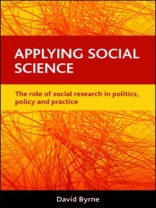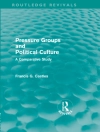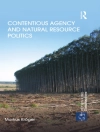In complex contemporary societies social science has become increasingly interwoven into the whole fabric of governance. At the same time there is an increasing recognition that attempts to understand the social world which seek to mimic the linear approaches of the conventional ‘hard sciences’ are mostly useless given the complex systems character of society in all its aspects. This book draws on a synthesis of critical realism and complexity theory to examine how social science is applied now and how it might be applied in the future in relation to social transformation in a time of crisis. A central argument is that there is no such thing as a ‘pure’ science of the social and that a recognition of the inevitability of application imposes obligations on social scientists wherever they work which challenge the passivity of most in the face of inequality and injustice.
Tabla de materias
Contents: The methodological foundations of applied social science; Constructing evidence: the development of knowledge which is to be applied; Surveying the social world: assembling knowledge as a basis for action; Evaluating: the role of social science in the establishment of effectiveness and outcomes; Legitimating: the selective use of social science in justifying policy and practice; Consulting: the role of social science in ‘participatory’ post-democratic politics; Modeling: the use of social science in predicting the future consequences of present actions; Acting: the role of social science in action-research; The Applied Social Sciences and the Academy; Conclusion: Where now?
Sobre el autor
David Byrne is a retired Professor of Sociology and Applied Social Sciences from the University of Durham and a long time practitioner of action research.












